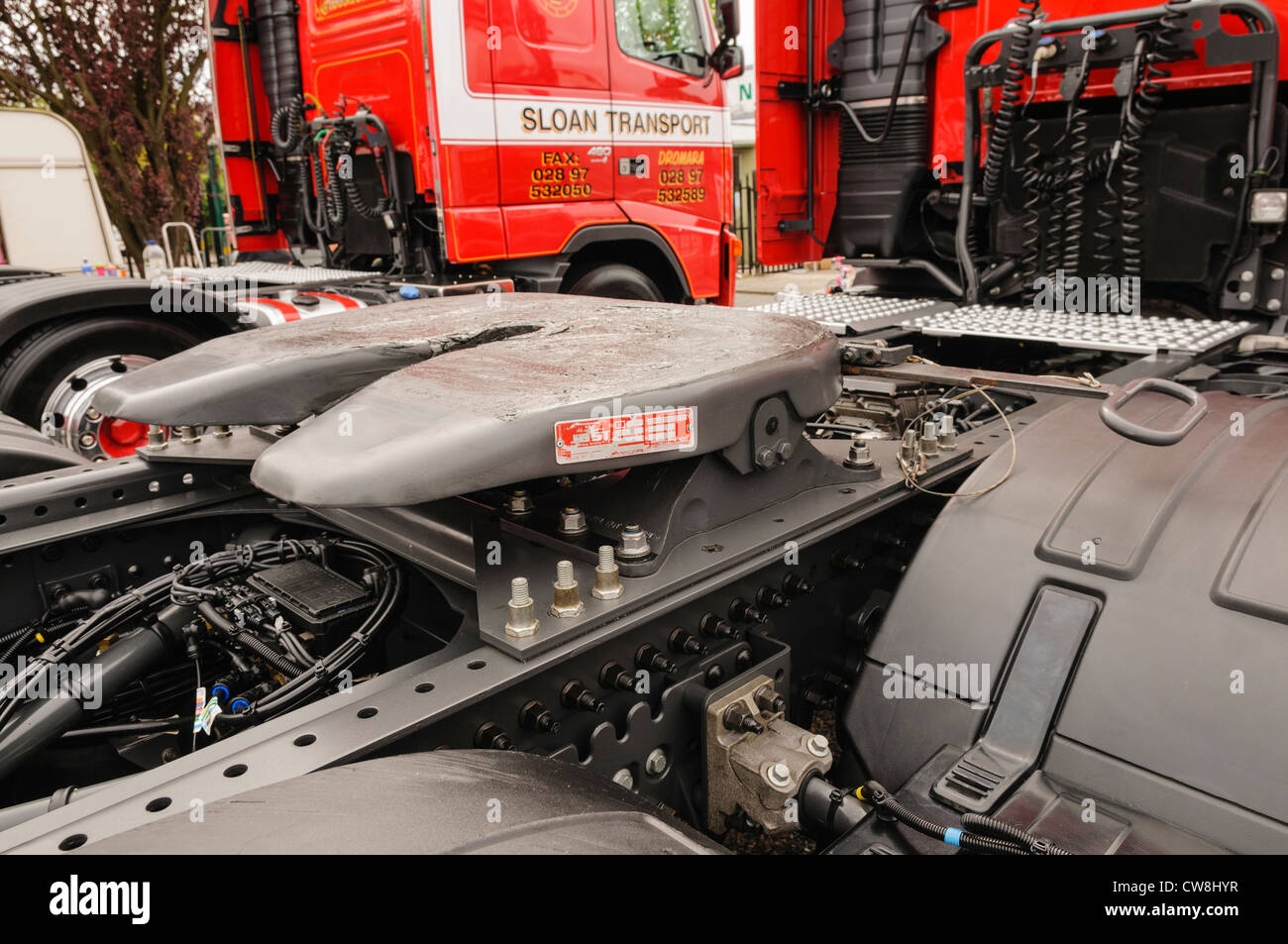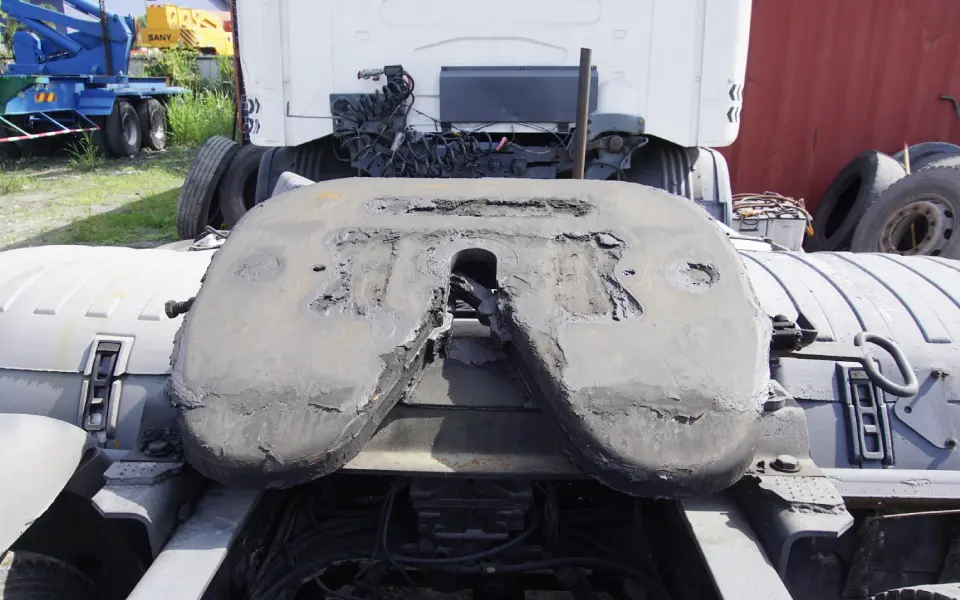The Ultimate Guide to Fifth Wheel Hitch Truck Rental: Everything You Need to Know
Towing a fifth wheel trailer opens up a world of travel possibilities. From luxurious RV adventures to hauling heavy equipment, the stability and capacity of a fifth wheel setup are unmatched. But before you hit the open road, you need the right truck and the right hitch. That's where fifth wheel hitch truck rental comes in. This comprehensive guide will walk you through everything you need to know, ensuring a safe, successful, and enjoyable towing experience.
Fifth Wheel Hitch Truck Rental
Why Choose a Fifth Wheel?
Fifth wheel trailers offer several advantages over traditional travel trailers. Their unique hitching system, located in the bed of a pickup truck, distributes weight more evenly. This results in:
- Increased Stability: The hitch point being over the truck's rear axle dramatically reduces sway and improves handling, especially in windy conditions.
- Higher Towing Capacity: Fifth wheels generally have higher weight ratings than bumper-pull trailers, allowing you to haul heavier loads.
- More Spacious Living: Fifth wheel trailers often feature larger living areas and more amenities, making them ideal for extended trips.
However, these benefits come with the requirement of a specific type of truck and a specialized hitch. This is where renting can be a cost-effective and practical solution.

Is Renting a Fifth Wheel Hitch Truck Right for You?
Renting a fifth wheel hitch truck might be the perfect solution if:
- You don't own a suitable truck: Purchasing a heavy-duty truck solely for occasional fifth wheel towing can be a significant expense. Renting allows you to access the necessary power and capability without the long-term commitment.
- You're trying out fifth wheel towing: Before investing in a truck and hitch, renting provides an opportunity to experience the fifth wheel lifestyle firsthand. You can assess whether it meets your needs and preferences without a major financial outlay.
- Your truck is temporarily unavailable: If your truck is undergoing repairs or maintenance, renting ensures you can still proceed with your towing plans.
- You only need it for a specific trip: For one-off or infrequent towing needs, renting eliminates the costs associated with truck ownership, such as insurance, registration, and maintenance.

Understanding Fifth Wheel Hitches: A Deep Dive
The fifth wheel hitch is the critical link between your truck and trailer. There are several types available, each with its own advantages and disadvantages:

- Standard Fifth Wheel Hitches: These are the most common type, offering a robust and reliable connection. They typically require manual locking and unlocking.
- Sliding Fifth Wheel Hitches: Designed for short-bed trucks, these hitches allow the trailer to slide backward, providing extra clearance during tight turns. This prevents the trailer from hitting the truck cab.
- Gooseneck Hitches with Adapters: While technically a different type of hitch, gooseneck hitches can be adapted for fifth wheel trailers using an adapter. This can be a versatile option if you already have a gooseneck hitch installed.
- Automatic Fifth Wheel Hitches: These hitches simplify the coupling process with automated locking mechanisms. They offer convenience but may come at a higher price point.
Choosing the Right Truck for Your Fifth Wheel
Selecting the appropriate truck is paramount for safe and successful fifth wheel towing. Here are key factors to consider:
- Towing Capacity: This is the maximum weight your truck can safely tow. It's crucial to choose a truck with a towing capacity that exceeds the gross vehicle weight rating (GVWR) of your fifth wheel trailer.
- Payload Capacity: This refers to the maximum weight your truck can carry, including passengers, cargo, and the weight of the fifth wheel hitch. Exceeding the payload capacity can compromise handling and safety.
- Engine and Transmission: A powerful engine, such as a diesel or high-output gasoline engine, is essential for towing heavy loads. The transmission should be appropriately geared for towing to provide adequate power and control.
- Braking System: A robust braking system is critical for stopping safely with a heavy trailer. Look for trucks with features like trailer brake controllers and exhaust brakes.
- Truck Bed Size: Short-bed trucks (typically around 6.5 feet) may require a sliding fifth wheel hitch to prevent the trailer from hitting the cab during turns. Long-bed trucks (8 feet) generally offer more clearance.
Fifth Wheel Hitch Truck Rental: What to Look For
When renting a fifth wheel hitch truck, consider these factors:
- Reputable Rental Company: Choose a rental company with a proven track record of providing well-maintained vehicles and excellent customer service.
- Truck Condition: Thoroughly inspect the truck before renting. Check for any signs of damage, wear, or mechanical issues.
- Hitch Installation: Ensure the fifth wheel hitch is properly installed and in good working order. Ask the rental company about the hitch's weight rating and compatibility with your trailer.
- Insurance Coverage: Verify that the rental agreement includes adequate insurance coverage for both the truck and the trailer.
- Rental Agreement: Carefully review the rental agreement before signing. Pay attention to details such as mileage restrictions, late fees, and damage policies.
- Towing Experience: Be honest about your towing experience. Some rental companies may require you to demonstrate your ability to safely operate the truck and hitch.
Pro tips from us: Always take pictures and videos of the truck before leaving the rental location. This provides documentation of the truck's condition and can help avoid disputes later on.
The Rental Process: A Step-by-Step Guide
- Research and compare rental companies: Look for companies that specialize in truck rentals for towing. Read online reviews and compare prices.
- Determine your towing needs: Calculate the GVWR of your fifth wheel trailer and identify the required towing and payload capacity.
- Reserve your truck: Book your rental in advance, especially during peak season.
- Inspect the truck: Before leaving the rental location, thoroughly inspect the truck and hitch.
- Connect the trailer: Follow the rental company's instructions for connecting the fifth wheel trailer to the hitch. Double-check all connections to ensure they are secure.
- Test the brakes and lights: Before hitting the road, test the trailer brakes and lights to ensure they are functioning properly.
- Drive safely: Maintain a safe following distance, avoid sudden maneuvers, and be aware of your surroundings.
Safety First: Essential Towing Tips
- Distribute Weight Evenly: Proper weight distribution is crucial for stability. Place heavier items over or slightly ahead of the trailer axles.
- Check Tire Pressure: Regularly check the tire pressure on both the truck and the trailer. Underinflated tires can lead to blowouts.
- Use Safety Chains: Always connect safety chains between the truck and the trailer. These chains provide a backup connection in case the hitch fails.
- Adjust Mirrors: Adjust your mirrors to provide a clear view of the trailer and surrounding traffic.
- Practice Turning: Practice turning in a large, open area before hitting the road. Fifth wheel trailers require wider turns than cars.
- Monitor Speed: Adhere to posted speed limits and adjust your speed based on road conditions.
- Take Breaks: Long drives can be tiring. Take frequent breaks to rest and stretch.
- Use a Spotter: When backing up, use a spotter to guide you and prevent accidents.
Common mistakes to avoid are: Overloading the trailer, neglecting maintenance, and failing to adjust your driving style for towing.
Cost Considerations: Budgeting for Your Rental
The cost of renting a fifth wheel hitch truck can vary depending on several factors, including:
- Rental Duration: Longer rental periods typically result in lower daily rates.
- Truck Type: Heavy-duty trucks with higher towing capacities generally cost more to rent.
- Location: Rental rates can vary depending on the location of the rental company.
- Season: Rental rates tend to be higher during peak season, such as summer and holidays.
- Insurance: The cost of insurance coverage will add to the overall rental expense.
- Mileage: Some rental companies charge per-mile fees, especially for long-distance trips.
To get an accurate estimate, obtain quotes from multiple rental companies and compare their rates and terms. Factor in the cost of fuel, tolls, and other expenses to create a realistic budget.
Maximizing Your Rental Experience
- Plan Your Route: Map out your route in advance and identify potential hazards, such as low bridges or steep grades.
- Pack Smart: Pack efficiently to minimize weight and maximize space.
- Bring Essential Supplies: Pack essential supplies such as tools, spare tires, and emergency equipment.
- Communicate with the Rental Company: If you have any questions or concerns, don't hesitate to contact the rental company.
- Enjoy the Journey: Fifth wheel towing can be a rewarding experience. Relax, take your time, and enjoy the scenery.
Alternatives to Renting:
While renting is a great option, here are some alternatives to consider:
- Borrowing: If you have a friend or family member with a suitable truck, you may be able to borrow it. However, be sure to obtain permission and ensure you are properly insured.
- Leasing: Leasing a truck can be a good option if you need it for an extended period but don't want to purchase it.
- Purchasing a Used Truck: Buying a used truck can be a cost-effective way to acquire a vehicle for fifth wheel towing. However, be sure to have it inspected by a qualified mechanic before purchasing.
Internal Link Example: Considering a smaller towable? Check out our guide to [Travel Trailer Rental: The Ultimate Guide](Insert link to relevant article on your blog here).
External Link Example: For more information on fifth wheel hitches, visit Trailer Life.
Conclusion: Embrace the Freedom of Fifth Wheel Towing
Fifth wheel hitch truck rental offers a flexible and affordable way to experience the freedom and adventure of fifth wheel towing. By understanding the factors involved in choosing the right truck, hitch, and rental company, you can ensure a safe, successful, and enjoyable towing experience. Remember to prioritize safety, plan your route carefully, and take your time. With the right preparation, you'll be well on your way to creating unforgettable memories on the open road.